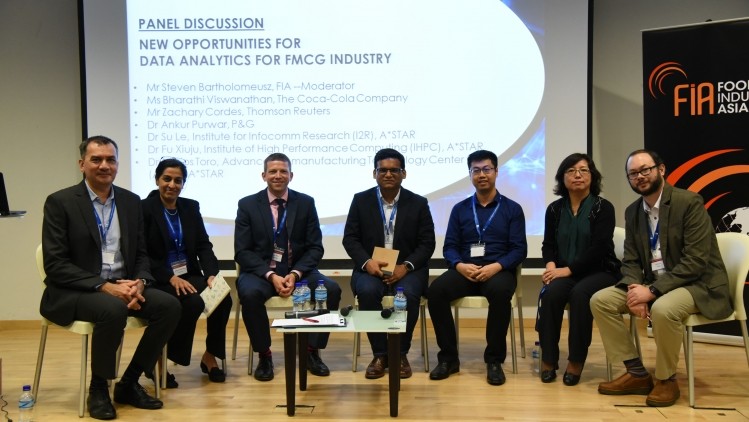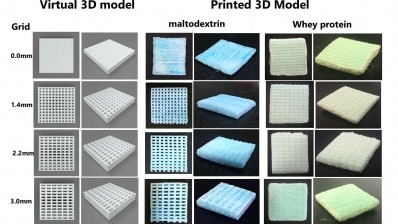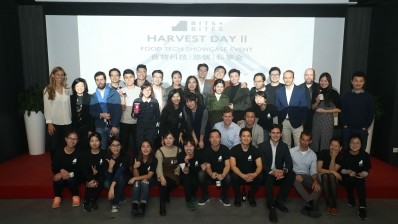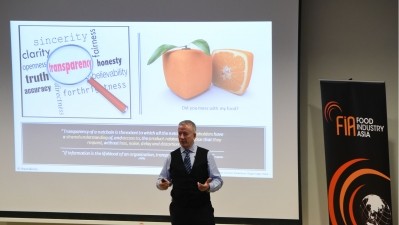Top 3 tips for the effective use of data analytics in the food industry

They were speaking as part of the Smart Data and the Food & FMCG event co-organised by Food Industry Asia (FIA) and Singapore's public sector research agency A*Star.
The panellists debated the opportunities for the application of data science or analytics in the FMCG sector, as well as correct approaches for companies. Here are their three pieces of advice.
1. Figure out why you need the data
“A lot of people feel, with big data being such buzzwords, if you’re not in you’re out,” said Steven Bartholomeusz, policy director, FIA.
“But ask yourself, what are you going to do with it? Is it really important to your organisation?”
Dr Carlos Toro, from the Advanced Re-manufacturing Technology Centre (ARTC) at A*Star, said: “A lot of people think the answer is inside the data. But you also have to do a lot of things with data before you can come to a good answer.”
“Even before you get there you have to know, what do you want to do? What do you want to prove?”
He suggested that companies consider the need for data analytics and its use carefully and not jump on the bandwagon.
“Perhaps ‘small data’ can solve the problem,” he said.
Once the purpose and decision is clear, the organisation can proceed to the next steps of asking how good data can be obtained, and how data analysts can be involved in the company’s processes for more effective results.
From the R&D point of view, Dr Ankur Purwar, group scientist of P&G, pointed out that with a lot of IoT devices being used today, data collection “will slowly start getting some structure”.
“The data collected will help us understand consumers better. It will even enable us to design better products for them,” he said.
2. Decide the best place to invest in analytics
Data now pervades all aspects of a business but food firms need to clearly understand which areas of their operations can maximise its benefits.
Bharathi Viswanathan, chief information officer for Asia Pacific at Coca-Cola, said there were around five or six basic domains or segments in the operations of any FMCG company but that she recommended data investment in the distribution and sales aspect.
She challenged the idea that the (retail) world is ruled by the likes of Amazon, and said that some products such as FMCG or CPG (consumer packaged goods) are sold differently and require more thought and investment in analytics.
“Everyday products need to be in every store. That is where I would place my first bet,” Bharathi said.
She explained that data needed to be assessed in a truly quantitative way. For instance, what exact products, and of what size, go into each different store.
“This would be backed by what would sell out in that store, from a demand point of view,” she said.
“We do not want to sell a product that doesn’t sell out. When the store owner wins, the ‘Coke system’ wins. That’s how we think about it: what are products that will sell.”
She elaborated that this means one would have to figure out the demographic model of who lives in an area and who shops there.
“It is about applying the data that we can get in the common world, where we have a lot of missing data sets,” she said.
Nonetheless, no matter in which area one decides to invest in data analytics, Bharathi advised food industry players to spend wisely: “My personal preference is to invest in things that are not experiments. Large organisations, or any company, need to operate on commercial success. I would invest in things which could really work in the real world.”
3. Cooperate to be more effective
“To use the data or information we have obtained requires collaboration across parties and stakeholders in order to really get the best out of it,” said Bartholomeusz.
“Otherwise, working in isolation, we may not really be drawing everything we could possibly get out of it.”
Dr Fu Xiuju, senior scientist of A*Star, said data from a variety of different parties could be placed together, to fully utilise IoT technologies and to make connections later. This helps to know your operation and that of your partners and collaborators better, she said.
She added many firms struggle to understand the relationship between different sets of data or how to link them.
Zachary Cordes, head of agriculture of Thomson Reuters analysts, added, “Data will be successful where we build a communication network that matches buyers and sellers.”
“Any product that can better bring together buyers and sellers of food ingredients are going to be a really interesting area. As supply chains become more complex, there’s more drive for sustainability and traceability.”
“For instance, we’re going to see fruit companies partner with suppliers of those raw commodities and goods, to be able to better connect to a farmer or a food company for direct sourcing. This would be an interesting area,” he said.
Even for Dr Toro, who admits ARTC is more in the “classic manufacturing” segments as opposed to food, he says that he hopes to engage more with food industry companies.
“We’ve found in our conversations that their technologies and information can also be applied in our industries,” he said.

















